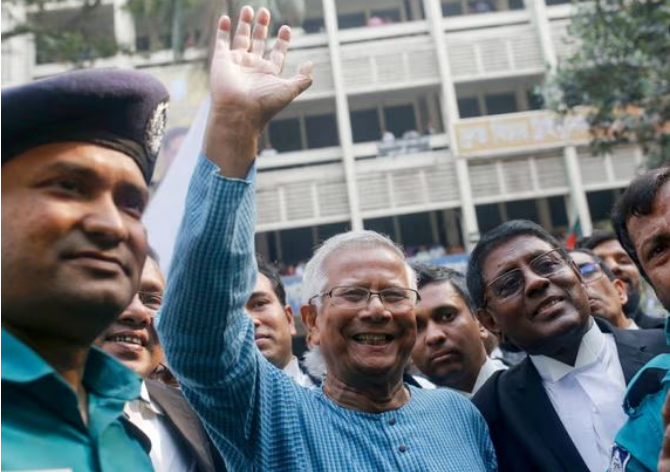
The student-led movement that led to the final fall of the dictatorial Sheikh Hasina regime on August 5, 2024, led the country to uncertainty, which was felt quite obviously domestically and throughout the South Asian region. By August 8, 2024, Dr. Muhammad Yunus, Nobel laureate and the originator of the concept of microcredit, took the oath as the Chief Advisor of the Interim Government of Bangladesh.
Many refer to what Bangladesh experienced post-Hasina regime as a “crisis.” This is a misconception of the ground realities. Considering that Bangladesh had lived through almost 16 years of a brutal dictatorship in which all civic space and civil rights had been banned under Sheikh Hasina and her draconian Awami League Party, Bangladesh did not fall into complete economic or societal chaos. Nor did it become prey to a military coup. In fact, the real “crisis” was over the day Sheikh Hasina fled to India.
What Bangladesh faces now is challenging and a great deal of hard work, but it is in no way a crisis. The most noteworthy element of why this is so is its current leadership. According to the Carnegie Endowment for International Peace, “Bangladesh is well-positioned to build a new political area. The good news is that Bangladesh is better positioned for stability than many other post-regime change cases. A state structure is in place…”
To fully appreciate what is going right in Bangladesh, we must first examine some of the challenges. For the purposes of this article, six challenges will be addressed.
Law enforcement:
One of the most significant challenges facing the country is the vacuum in the police force. Due to law enforcement becoming entirely politicized and heavily corrupted morally and financially during the Hasina regime, many police officers who indiscriminately killed innocent student protesters went into hiding. One of the 5 most important points on the Interim Government’s agenda has been normalizing the country’s law and order situation.
The martyred, injured, and their families:
Over 1,000 people (mostly youth) were savagely killed by Sheikh Hasina’s brutal forces during the July-August protests in Bangladesh, and several thousand were injured. Rather than depending on international aid to tackle the financial costs of this tragedy, Dr. Yunus formed a foundation to collect funds. Not only was this a financial success, but it created a societal bond full of empathy in which Bangladeshis came together to help those in need.
The press:
A second challenging point would be the media, another point of the Interim Government’s agenda. During the Hasina regime’s dictatorship, most, if not all, press and media outlets were obligated to be politicized, publishing only state-sponsored pro-Awami League propaganda. The government has changed, but from all evidence, the tendencies of the media outlets have not. The old practices of not challenging the former dictatorship seem to remain. This is on the road to be addressed by the Interim Government.
Education:
The most important factor in recreating a successful democratic society lies in education. Ideally, this is key from the primary school age when children are taught the importance of critical thinking. A prosperous, democratic society can only be established with a continuation of future generations trained to question all forms of injustice. Furthermore, critical thinking-based education offers tools to make Bangladeshi students competitive in a 21st-century global environment.
Chief Advisor Dr. Yunus clearly understands that. He has recently stated that foreign languages should be taught to primary school students. This is a form of education that, in recent years, has been adopted in the People’s Republic of China. The government has taken steps to ensure that English is taught to all children from primary school to ensure that future generations are competitive in the job market with global trends. Bangladesh can and should follow suit to do the same for future generations. It appears that Bangladesh is on the right track to make positive changes in education.
Indian hegemony:

